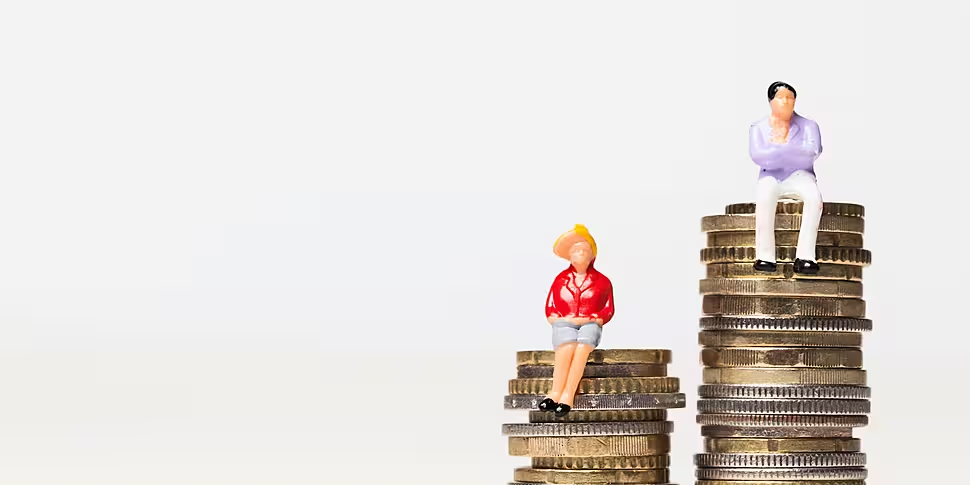Ireland’s gender pay gap is among the lowest in the EU, but men still earn 10% more, according to a new Eurostat study.
A new study published by Eurostat has revealed that in 2020, Irish women made, on average, 9.9% less than men per hour.
This would indicate that for every €1 men earn in Ireland, women earn €0.91.
The study did not have Irish data available for the year 2021, but the European Union average for the year was a 12.7% difference in earnings.
In 2018, the gender pay gap in Ireland was 11.3%, falling to 10.8% in 2019.
On Newstalk Breakfast, WorkEqual founder Sonya Lennon said the figures are compiled through the overall mean earnings of men and women in Ireland.
"We mark it always with the point in the year when women stopped earning relative to men, and you're still talking about a five-week differential at the end of the year," she said.
'Cheerful'
Ms Lennon said the study is a "reason to be cheerful," as Ireland has fallen below double-digit differences for the first time.
"What's interesting about this is that Ireland and the legislation that has been brought in is much more far-reaching than our closest neighbours in the UK," she said.
"Where we're at 9.9% at the moment, that's for companies with 250 employees or more.
"Next year, we move to 150, and the following year, we move to 50.
"If you want to put that in context, the Department of Employment say that 99.8% of all businesses have less than 250 employees in Ireland."
Small organisations
As legislation is applied to smaller organisations, Ms Lennon said gender pay gaps may become more obvious.
"That's absolutely inevitable because certainly with the organisations that we've been talking to with WorkEqual, there's a lot of fear and trepidation among the smaller organisations," she said.
"[They] don't have the resources and don't perhaps even have the sort of statistical mass to create equity with as much ease as the bigger companies."
Close the gap
Ms Lennon said "closing the gender pay gap" is not the greatest marker of equality, but rather creating "cultures of equitable workplaces" for women.
"I was over in Iceland last year, which has consistently for the last 10 years, been the most equitable, society and economy in the world ... what we're looking at there is a shift in values and in mindset around what equality really means," she said.
"So, for example, there is a mandatory shared parental leave in Iceland.
"So, it's a systemic issue – women make choices within the structure of what's available to them at the moment, and that's flawed."
'Wicked problem'
Tackling the "wicked problem" of gender inequality in the workplace is something that requires a change in the "many moving parts" of society, according to Ms Lennon.
"Childcare is absolutely part of it, the taking of parental leave is part of it, women's representation in leadership, there are so many parts," she said.
"This is something that we need to monitor very carefully."
You can listen back here:









